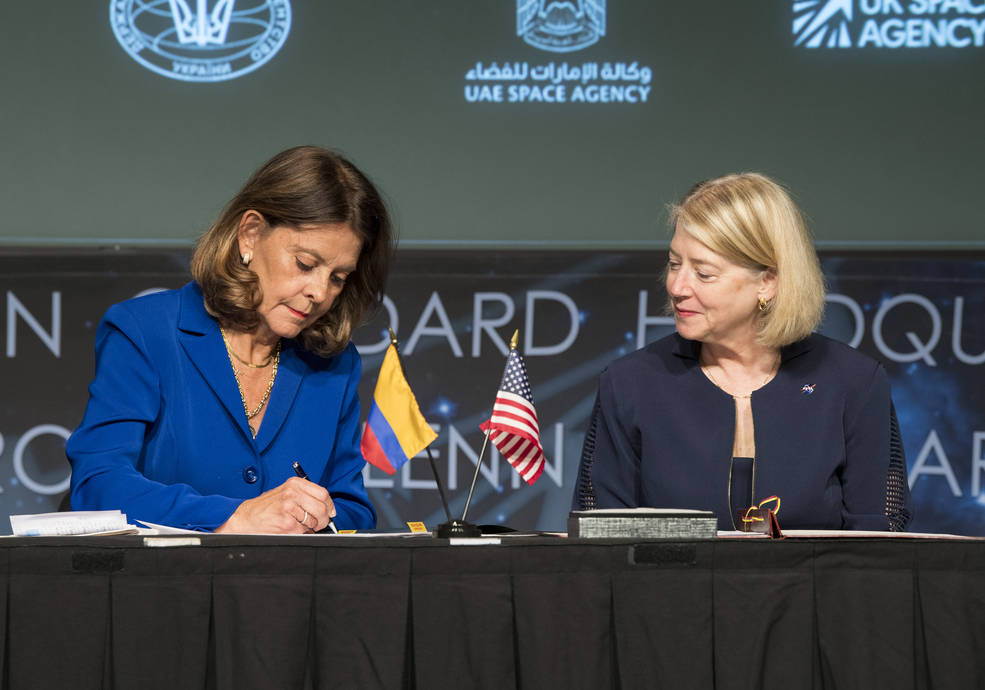Colombia became the nineteenth country to join the Artemis Accords. The signing ceremony took place on May 10 at NASA headquarters in Washington. On the Colombian side, the Accords were signed by Vice President and Foreign Minister Marta Lucia Ramirez.

“It is a great honor for me to be here at NASA today, signing the Artemis Accords, representing Colombia at a very important moment in bilateral relations, as this year we celebrate the 200th anniversary of diplomatic relations between the United States and Colombia,” Ramirez said. “This is an important step for my country as we continue to develop our knowledge, national potential and understanding of the importance of space for future generations of Colombians.”
After Brazil and Mexico, Colombia became the third Latin American country to join the Accords. In total, nineteen countries have signed them at the moment. These include the USA, Australia, Brazil, Great Britain, Italy, Canada, Luxembourg, UAE, Japan, South Korea, New Zealand, Poland, Israel, Mexico, Romania, Bahrain, Singapore and Colombia. Ukraine is also a party to the Artemis Accords.
What are the Artemis Accords?
The Artemis Accords are an agreement between the Governments of the States participating in the Artemis program. It defines the principles of cooperation and civil activities for the exploration and use of the Moon, Mars, comets and asteroids for peaceful purposes.
The Artemis Accords establish the following set of fundamental principles that should guide all its signatories:
- Peaceful research. All actions taken within the framework of the Artemis program should be carried out exclusively for peaceful purposes.
- Transparency. The parties to the Accords should openly talk about the goals of their activities to avoid confusion and conflicts.
- Technical compatibility. The parties to the Accords will use common technical standards, which will ensure the interchangeability of various components and increase the level of safety.
- Emergency assistance. The parties to the Accords undertake to provide assistance to astronauts in trouble.
- Registration of space objects. The Parties to the Accords must sign a Convention on the Registration of Objects Launched into Outer Space.
- Publication of scientific data. The Parties to the Accords undertake to publish the collected scientific information so that the whole world can use it.
- Heritage protection. The Parties to the Accords undertake to preserve the historical heritage of mankind beyond the Earth.
- Space resources. The extraction and use of the resources of Solar System objects is the key to safe and sustainable space exploration. The Parties to the Accords confirm that such activities should be carried out in accordance with the “Outer Space Treaty”.
- Conflict prevention. The Parties to the Accords undertake to prevent third-party interference in space activities and to support the principle of due attention, as required by the Outer Space Treaty.
- Space debris. The Parties to the Accords undertake to ensure the safe disposal of space debris.
According to https://www.nasa.gov
Follow us on Twitter to get the most interesting space news in time
https://twitter.com/ust_magazine
